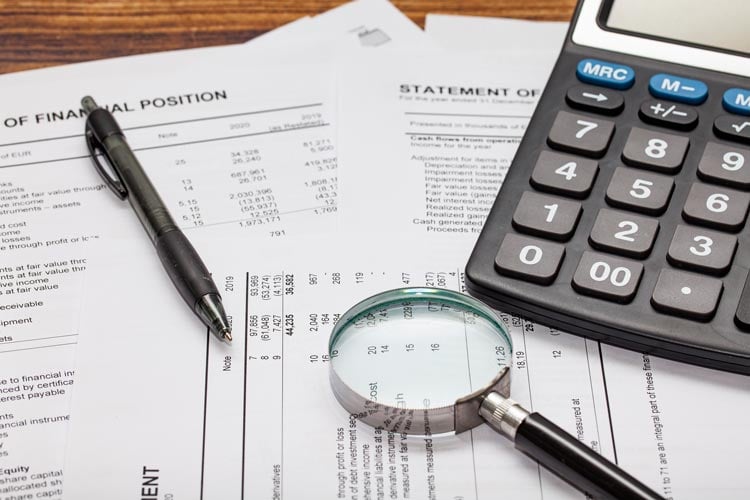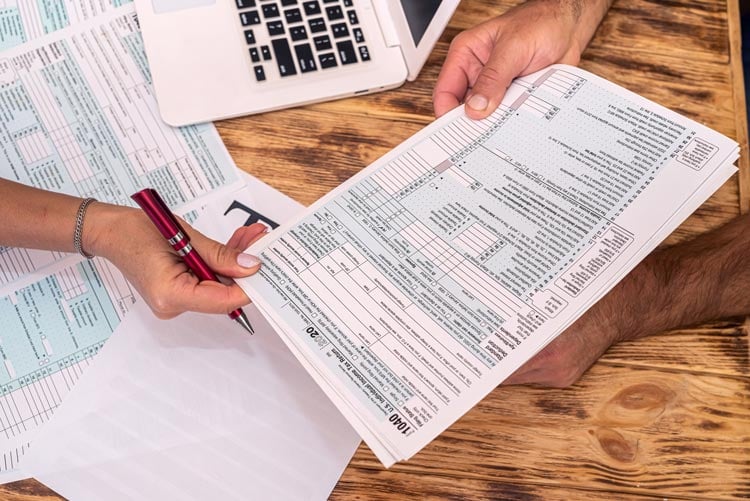Page 7 61 - 70 of 278
Do You Recapture Depreciation on an Installment Sale?

In a previous blog, we discussed the benefits of selling real estate assets through installment sales. Offering an installment sale agreement could widen the buyer pool. Additionally, this method can help decrease capital gains taxes.
When Should I Receive My 1099-R Form?

A 1099-R form is specifically related to distributions from retirement accounts and is essential for reporting your income accurately to the Internal Revenue Service (IRS). So, when should you expect to receive your 1099-R form?
Is Estate Planning Tax Deductible?

Estate planning is a financial and legal process that allows individuals to efficiently transfer their assets to heirs while potentially minimizing estate taxes and ensuring their wishes are carried out after they pass away. It involves creating wills, trusts, powers of attorney, and other legal documents to protect wealth and ensure a smooth transfer of assets to the next generation. But, is tax planning tax deductible?
How Long Can You Carry Over Rental Losses?

No one goes into owning real estate with the idea that they might take a loss on it. But it can happen—issues like depreciation, unexpected repairs, or a sudden bump in interest rates that might impact your mortgage.
Can Passive Rental Losses Offset Other Passive Income?

The three generally acknowledged income categories are active, passive, and portfolio income. While active income (also called ordinary or earned income) results from active participation in an endeavor, such as wages from a job, passive income is derived from activities requiring minimal taxpayer effort. Passive sources of income may come from rental properties (but not always), partnerships in a business, and royalties. Portfolio income includes dividends, interest, and capital gains.
Who Pays Property Taxes on a Life Estate?

A life estate is a method of owning property with another person and then efficiently distributing the property to the designated person(s) after your death. This tactic is most often used to secure ownership of a residence that is the owner’s primary home. The homeowner creates a life estate, which reserves for that person the right to occupy the home for life. The intended heir is defined as the remainderman. The remainderman has an ownership interest in the home beginning with the designation, but they do not own it until you die.
What is the Tax Rate for Depreciation Recapture?

While depreciation is a great deduction for real estate investors, it isn’t free. Eventually, the IRS will have to be paid back, which happens when the property is sold. That’s where depreciation recapture comes in. Investors should be aware that depreciation recapture is always lurking and waiting for the sale date. By being aware of this tax and the rate used, investors won’t be surprised when this expense shows up in the sale.
How Much of a Farm Loss is Tax Deductible?

Farm losses often go hand-in-hand with farm ownership. Figuring out how much of a farm loss is tax deductible can be as difficult as raising corn in Death Valley.
Why Are Rental Losses Disallowed?

Real estate investors know that income-generating investment properties aren’t always in the black. Losses can be common on rental properties, especially in years where you have to fund capital expenditures for major repairs or upgrades to the property, or if you have extended periods where your property sits vacant.
How to Get a 1099-DIV Form

If you’ve invested in mutual funds, stocks, or other dividend-paying securities, it’s important to understand how your earnings are reported to the IRS. The 1099-DIV form is a tax document that details the dividends and capital gains you received throughout the year.
Page 7 61 - 70 of 278


